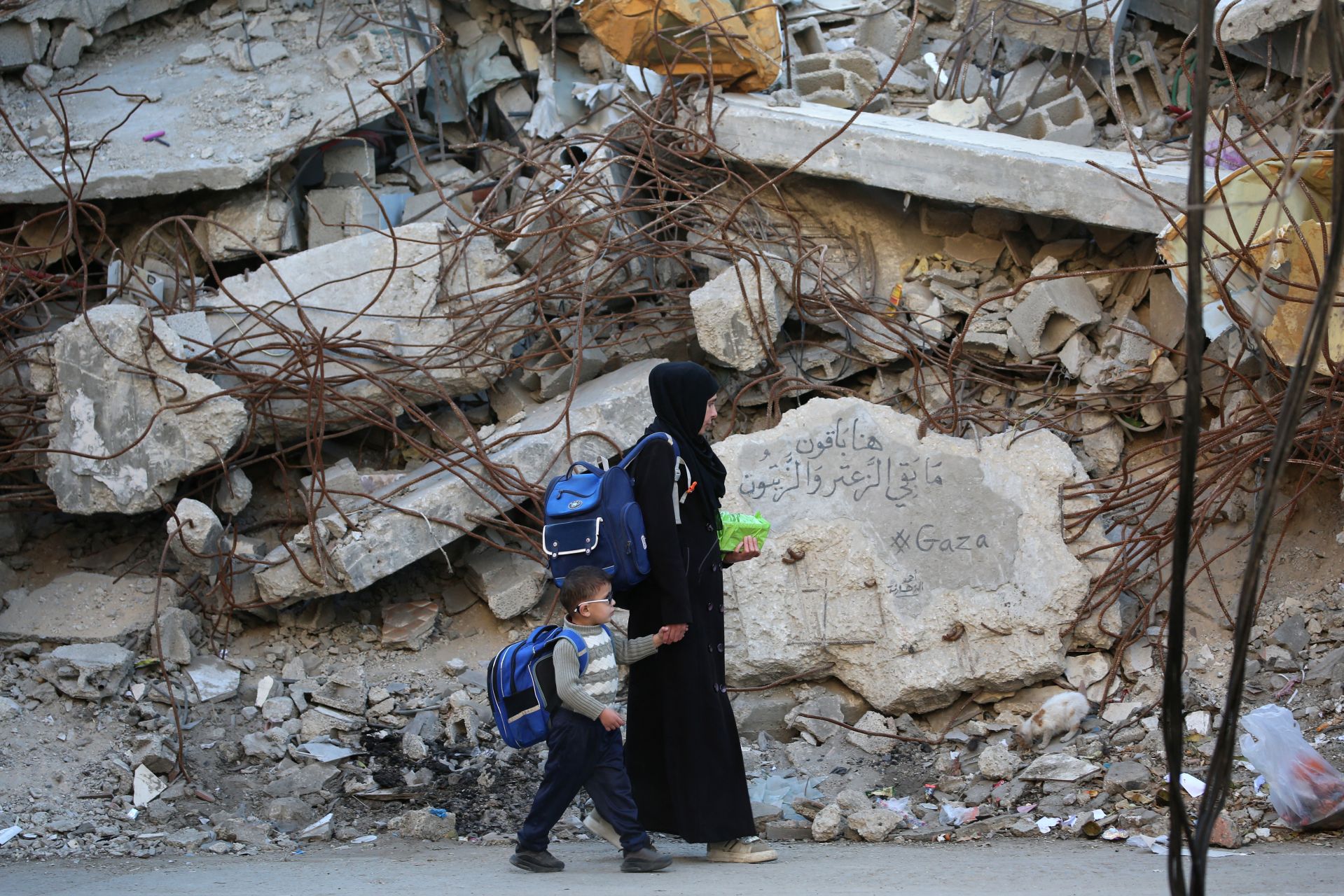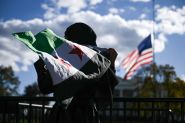- Home
- Middle East
- The UN Asks The ICJ For Its Opinion On Israel's Obligations Towards The Palestinians

©Eyad Baba / AFP
On Thursday, the United Nations General Assembly approved a resolution asking the International Court of Justice (ICJ) to rule on Israel's humanitarian obligations towards the Palestinians, at a time when the Israeli government is accused of obstructing access to aid in Gaza.
The resolution, submitted by Norway, was adopted by a large majority: 137 countries voted in favour, 12 against and 22 abstained.
It asks the ICJ to clarify what Israel is required to do to ‘ensure and facilitate the unimpeded delivery of supplies essential to the survival of the Palestinian civilian population’.
Although the decisions of the ICJ, the UN's highest court based in The Hague, are legally binding, the court has no practical means of enforcing them.
But they do increase the diplomatic pressure on Israel. In July, in a separate case, the ICJ issued an advisory opinion to the effect that the Israeli occupation of Palestinian territory was ‘illegal’ and should cease as soon as possible.
Israel strictly controls all inflows of international aid, which is vital for the 2.4 million Palestinians in the Gaza Strip who are facing a humanitarian disaster.
The Israeli government, which has imposed a total siege on the territory, often criticises humanitarian organisations for their inability to distribute large quantities of aid.
‘It is a catastrophe that the international community has not been able to respond adequately,’ Norwegian Deputy Foreign Minister Andreas Kravik told AFP.
‘It's not that the international community is unwilling to provide humanitarian aid, but we don't have access (to Gaza) and we're not getting the cooperation we need,’ he lamented.
Norway's initiative was triggered by the Israeli parliament's adoption in October of a law banning the UN agency for Palestinian refugees (Unrwa) from operating on Israeli soil and coordinating with the Israeli authorities from the end of January.
The Israeli authorities accuse Unrwa employees of participating in the massacre perpetrated on its soil on 7 October 2023 by the Palestinian Islamist movement Hamas.
‘I don't know what will happen if the law comes into force,’ admitted Stephane Dujarric, spokesman for the UN Secretary General, on Thursday.
‘Let's be clear: UNICEF cannot replace the 2,000 teachers working for Unrwa in West Bank schools. The WHO (World Health Organisation) cannot replace the hundreds, if not more, Palestinian health professionals who work in Unrwa clinics. It is simply impossible’, he said.
Danny Danon, the Israeli ambassador to the United Nations, felt that the General Assembly was refusing to move forward. ‘The ICJ is now being used as an instrument’, he accused.
With AFP.
Read more



Comments